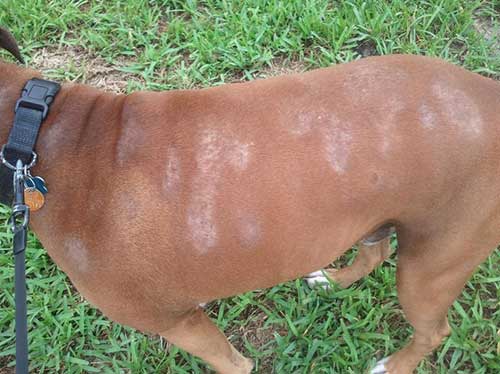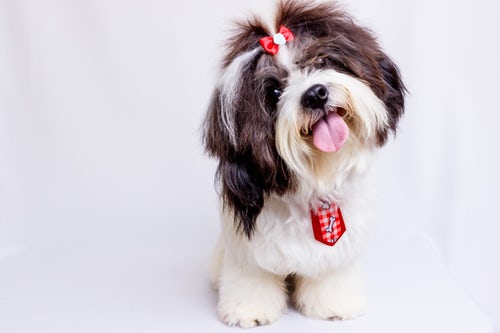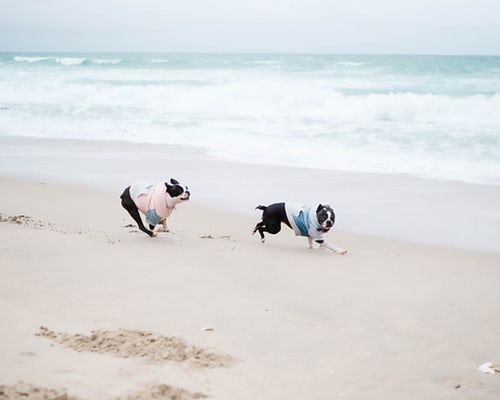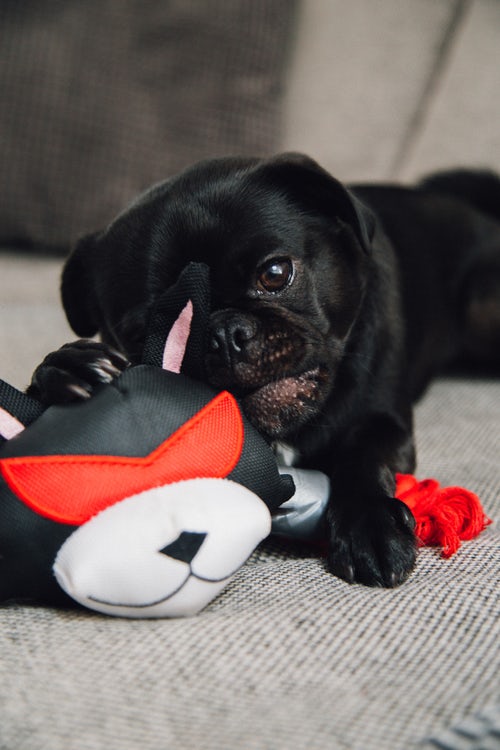Table of Contents
Help, my dog is losing hair! What can I do?
First of all, don’t panic. Sometimes losing hair is completely normal for dogs. just like with us their hair gets old and brittle and might break off a little. But it is alright as their hair usually comes back stronger. However, since you are probably a concerned pet parent and you are freaking yourself out a little with the “MY DOG IS LOSING HAIR” part, please read the following article to calm your mind. The four things to do are analyse symptoms, find the causes, choose the treatment(s), and give them cuddles.
….
Why is my dog losing hair?
Hair loss in dogs (also referred to as partial or complete alopecia) can often be observed in canines due to the following reasons: skin infections, allergies, unhealthy diet, and endocrine disorders.
The causes for your dogs hair loss may vary, so it is best to talk to a vet first before taking any decision.
….
Symptoms of hair loss
Alopecia is an obvious condition and can occur at any age, in any breed, and anywhere on the body. There are a few signs you can look out for:
- The thinning of hair in general
- Bald patches (complete hair loss at one specific place)
- Hair loss around the eyes and ears
- Symmetrical hair loss patterns
- Dark grey or black skin that itches
- Smelly odour
- Bleeding or moisture around hair loss area
- Inflamed, dry, or scaly skin
….

Causes of hair loss
Here are some of the possible causes of hair loss in dogs: some possible causes for hair loss in dogs include:
- Genetics ( some breeds are more prone to hair loss than others)
- Pressure sores
- Nervous chewing or licking
- Foreign body reaction (thorn, splinter, glass)
- Ringworm (Fungal infection)
- Allergies (This includes fleas, food, shampoo, other grooming products and the environment)
- Recent vaccination (scleroderma)
- Mites (Mange)
- Insect bites
- Trauma and/or scarring
- Post-surgical clipping Infection (Bacterial, Yeast or Fungal, Viral)
- Diabetes
- Thyroid disorder Cushing’s disease
- Sex hormone imbalance
- Chemotherapy
- Skin cancer
I tried to arrange them from the best case scenario to the worst case scenario. Please remember not to make any assumptions and take to your veterinarian first before deciding anything.
my dog is losing hair
Treatment for hair loss
It depends on what the veterinarian will advise you, but there is a chance it could be one of the following medicines.
- Antibiotics (oral or topical). These will treat bacterial infections, but dont take them lightly.
- Antifungals (oral or topical) can treat yeast and ringworm infections.
- Immunosuppressive Drugs or Anti Cytokine Drugs. These can be required for environmental allergy (Atopy) control. Usually, life long treatment is needed. Immunotherapy may be needed orally or by injection for allergy desensitization.
- Behavioural medications can treat nervous chewing or licking.
- Routine flea preventative for flea induced hair loss.
- Medicated shampoos or dips can treat cases of mange.
- Insulin therapy for diabetic cases.
- Hypoallergenic diets will often solve hair loss due to food allergies. It may take some time to find out what exactly your pet is allergic to, so wait for your trusted veterinarian to tell you.
- Thyroid medication and hormone therapy can reverse hair loss in hormonal and endocrine disorders.
- Surgery may be required to remove sections of skin cancer or tumours. If your pet has a thorn or splinter, the object will be removed (most often with local anaesthesia) and antibiotics and ointments can aid in healing.
- Neutering or spaying your pet may be required for sex-hormone disorders.
- Chemotherapical hair loss should end with the chemotherapy sessions. Congratulations, little survivor!
- Genetic hair loss can be permanent. Please remember to love your pet regardless of whether they have hair or not.
my dog is losing hair

Home remedies for hair loss treatment
My dog is losing hair,but I cant give them these medicine because of actual, scientifically proven reasons, what can I do? Well I am here to help the best I can. Here are five helpful home remedies for hair loss treatment in dogs.
my dog is losing hair
Humidifier
One of the most common problems with dog hair loss is dry skin and hair, so one of the solutions to that could be to get a humidifier.
It will keep more moisture in the air, soothing your dog’s skin and preventing that dry, itchy skin. It will also prevent your dog from that terrible scratching that can lead to even higher hair loss.
Try to keep the humidifier near to where your dog spends most of their time. Also, make sure to check with the veterinarian first if your dog is all right with it.
my dog is losing hair
Apple cider vinegar
Apple cider vinegar is one of those old home remedies that people have been using for a gazillion reasons. I mean weight loss in women and hair loss in dog treatments fall both under this category.
So you may ask yourself: my dog is losing hair and you are spouting about some “old wives medicine”.
Let me tell you why: the apple cider vinegar’s acidic nature makes it a natural antifungal & antibacterial. As you can tell, when appl(e)ied to irritated skin, it will clean it out to an extent.
my dog is losing hair
Brush your dog
despite being such a simple gesture, it can work wonders for your dogs hair.
Just like with our hair, dogs have natural oils in theirs that helps keep their skin moisturized and protected. However, sometimes these oils don’t reach all over your dog’s body so you have to help them a little.
But brushing your dog helps to distribute those natural skin oils all over the fur, keeping your dog’s hair looking healthier and shinier.
Similar to working out for us, this has to be done on a regular basis in order to really reap the benefits.
my dog is losing hair
Lemon juice
Lemon juice can be used similarly to apple cider vinegar. Both are acidic liquids that can help fight against bacteria and restore the pH of any problem skin areas.
It is often the skin underneath your dog’s hair that is causing the hair loss, so you have to take the problem by the root, right?
my dog is losing hair
Olive oil and allergens
We all know that olive oil is good for us when we get it in our diet. The ancient Greeks would use it on their skin in order to make it smoother and shinier.
Olive oil has two main benefits: If your dog has patches of dry skin, try applying a little olive oil to those rough patches. Olive oil is great at moisturizing dry, rough skin.
Its second benefit is that it can get rid of mites that are the very cause of your dog’s hair loss.
Simply massage it into your dog’s skin and you are good to go. well, and keep them off the good furniture for that time. Now to allergens: many people don’t know that a quite a high number of hair loss problems can be attributed to an allergy.
It is a given that you need to remove the allergens (aka whatever is causing your pets allergic reactions).
Consult with your veterinarian about the best way to get rid of the allergens. I know it can be difficult but at least you can stop saying “my dog is losing hair” every time someone asks about your furry best friend.

Thoughts
my dog is losing hair
Well, this was my take on dealing with the problem of my dog is losing hair. I hope you have found some helpful advice, pleases remember that I am not a professional or a veterinarian, so talk to them to be absolutely sure of what to do. you can read this article about stopping your dog from shedding hair if you want to. Read you next time!

